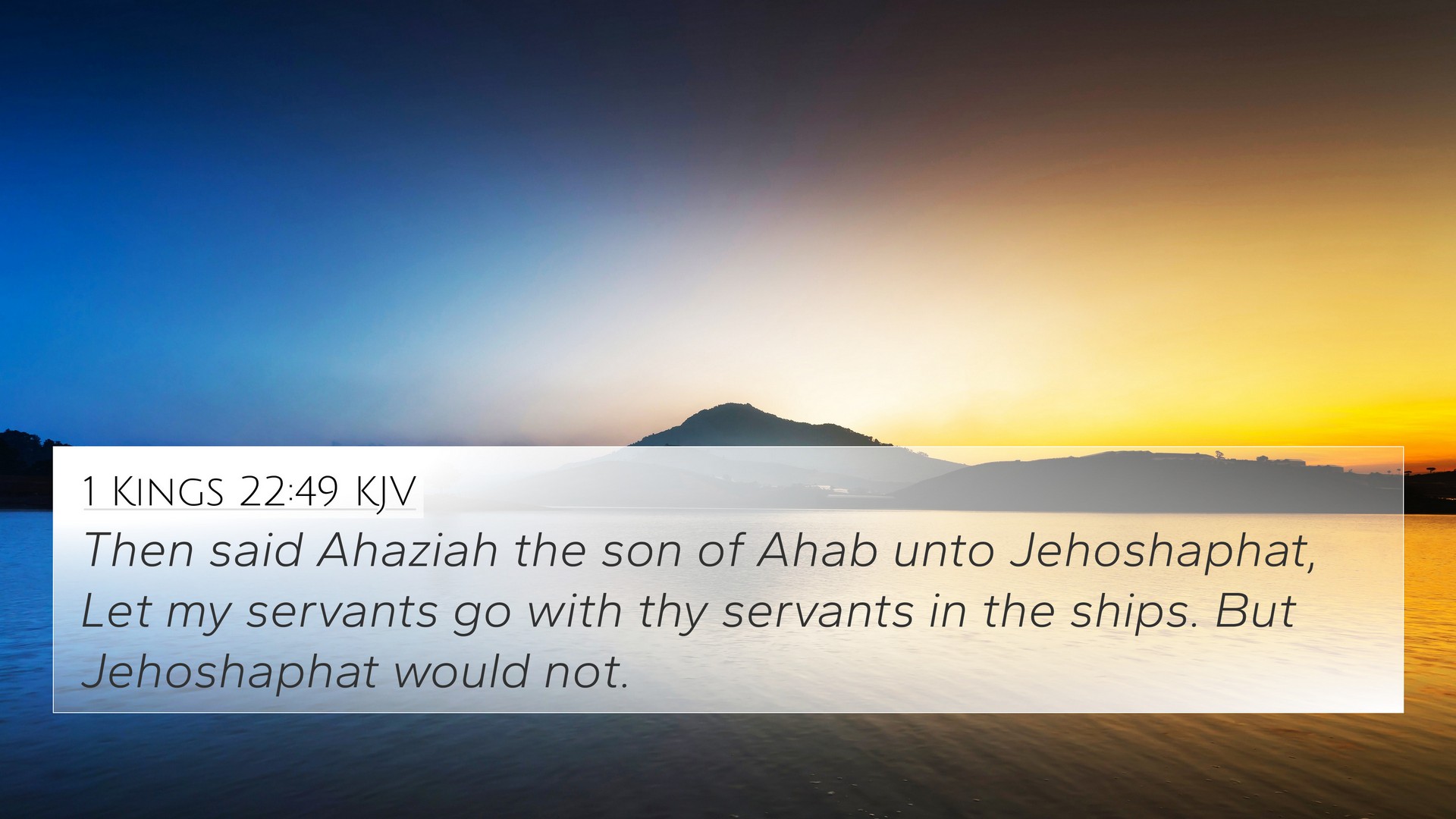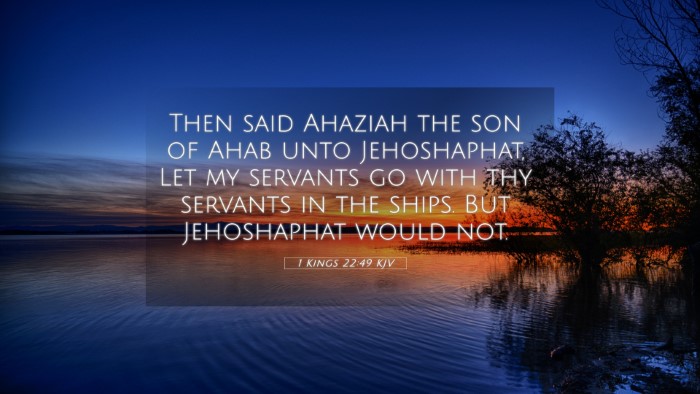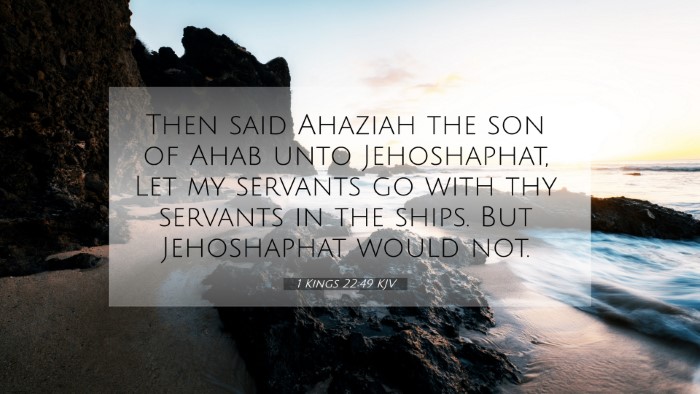Understanding 1 Kings 22:49
Bible Verse: 1 Kings 22:49
Context: This passage occurs in the narrative concerning the reign of King Jehoshaphat of Judah and King Ahab of Israel, highlighting a pivotal moment in the history of Israel and the interplay of divine prophecy and political intrigue.
Summary of Meaning
1 Kings 22:49 states: "And Jehoshaphat made ships of Tarshish to go to Ophir for gold, but they went not; for the ships were broken at Ezion-geber." This verse addresses the ambition and failed endeavors of King Jehoshaphat to seek wealth through maritime ventures. Commentators suggest that while Jehoshaphat was a generally good king, his alliance with Ahab and subsequent actions reveal his flaws.
Commentary Insights
-
Matthew Henry:
Henry points out that Jehoshaphat's decision to send ships to Ophir indicates a desire for prosperity but also reflects a lapse in discernment. He questions the wisdom of aligning with Ahab, reminding readers of the consequences of straying from divine guidance.
-
Albert Barnes:
Barnes emphasizes the failure of the ships as a divine judgment. The broken vessels symbolize how ventures not aligned with God's will ultimately lead to ruin, serving as a metaphor for the futility of pursuing worldly gain devoid of divine favor.
-
Adam Clarke:
Clarke elaborates on the geographical implications and the historical context, relating the failure of the ships to other biblical themes of disobedience leading to failure. He also connects this narrative to the idea of Israel's reliance on military alliances and commerce rather than trusting in God.
Bible Cross-References
- 2 Chronicles 20:35-37: Discusses Jehoshaphat's maritime ventures; highlights the consequences of alliances.
- 1 Kings 22:47: Mentions the absence of silver and gold in Israel, further illustrating Jehoshaphat's motives for trade.
- Proverbs 16:3: Advises committing one's plans to the Lord, cautioning against reliance on self-made efforts.
- James 4:13-15: Explores the futility of planning without God's guidance, resonating with Jehoshaphat's failure.
- Ecclesiastes 5:10: Reflects on the emptiness of pursuing wealth and possessions, aligning with the themes of 1 Kings 22:49.
- Isaiah 31:1: Warns against trusting in alliances instead of God, echoing Jehoshaphat's mistakes.
- Hosea 8:9: Talks about Israel's reliance on foreign alliances leading to downfall, paralleling the context in 1 Kings.
Connections and Themes
This verse serves as a vital link in understanding the broader themes of trust, divine sovereignty, and the consequences of human ambition. It illustrates the Bible verse parallels between the motives of leaders in Israel, their reliance on alliances and commerce, and the repercussions of abandoning faith.
Comparative Analysis
By comparing this event with other scriptural accounts, such as the downfall associated with Saul’s unfaithfulness (1 Samuel 15), we observe a consistent biblical theme warning against the dangers of misplacing faith in human endeavor over divine will.
Thematic Connections
This narrative builds a thematic Bible verse connection with stories of other kings, particularly regarding their outcomes based on their choices in governance. Jehoshaphat's initial piety contrasts sharply with the outcomes of his alliances and ventures, showcasing the need for spiritual discernment in leadership.
Tools for Cross-Referencing
Utilizing a Bible concordance or a Bible cross-reference guide can aid in further exploration of these connections. A thorough cross-reference Bible study will yield deeper insights into the relationships among biblical narratives, informing a richer understanding of the text.
Conclusion
The lesson from 1 Kings 22:49 encourages readers to evaluate the alignment of their ambitions and efforts with divine will. By engaging in cross-referencing Biblical texts, one can uncover the intricate inter-Biblical dialogue that enriches the interpretation of scripture.


